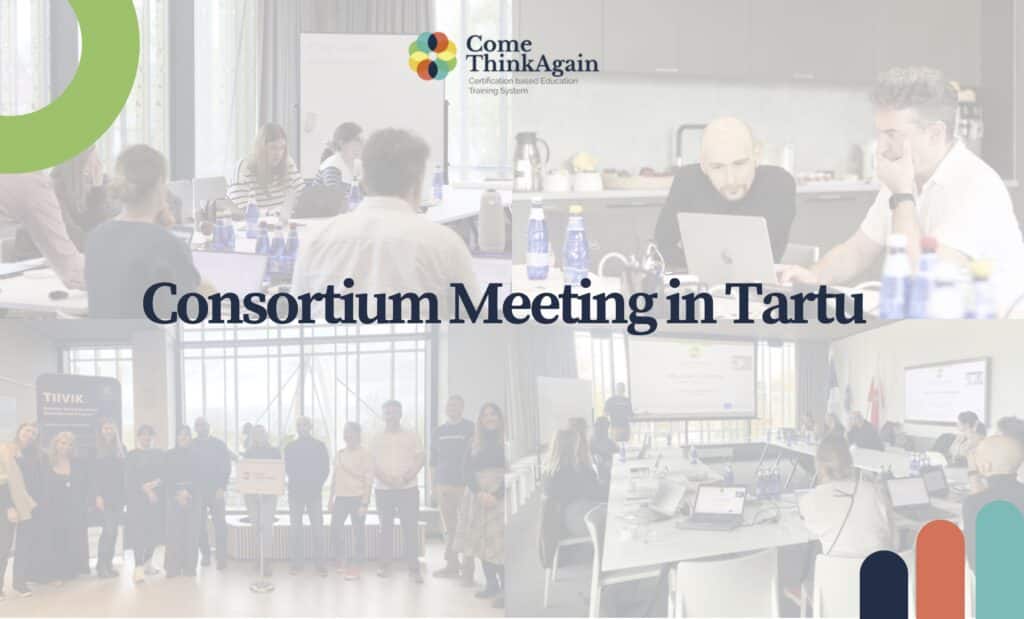The ComeThinkAgain consortium recently gathered for a productive two-day meeting hosted by the University of Tartu in Estonia on April 28-29. Partners from across Europe came together to review project progress, align on upcoming milestones, and collaboratively develop key components of our Educational Training System (CETS).
Project Progress and Management
We’re pleased to report that the project is advancing according to plan, with 4 tasks and 5 milestones completed so far. Five deliverables have been submitted to the European Commission, with two already approved. The consortium continues to maintain strong quality assurance practices and has developed a robust risk management approach to ensure smooth implementation of all project activities.
Educational Content Development
A major focus of the meeting was the development of our educational modules across three key pillars:
- Computational Thinking (CT) for primary, secondary, and VET education levels
- Entrepreneurship Education (EE) with tailored approaches for different educational contexts
- Green Skills (GS) promoting environmental awareness and sustainable development
Partners participated in an engaging World Café session, where they rotated between thematic tables to provide input on each pillar. Key recommendations included:
- Integrating AI components into Computational Thinking modules
- Focusing on entrepreneurial mindset development and coping with uncertainty
- Empowering learners to make environmental changes at personal, local, and political levels
- Ensuring the accessibility of modules across different disciplines and subjects
The content development teams are now working to standardize all modules using a common template before the May 22nd deadline, with bilateral meetings scheduled between module developers and piloting partners.
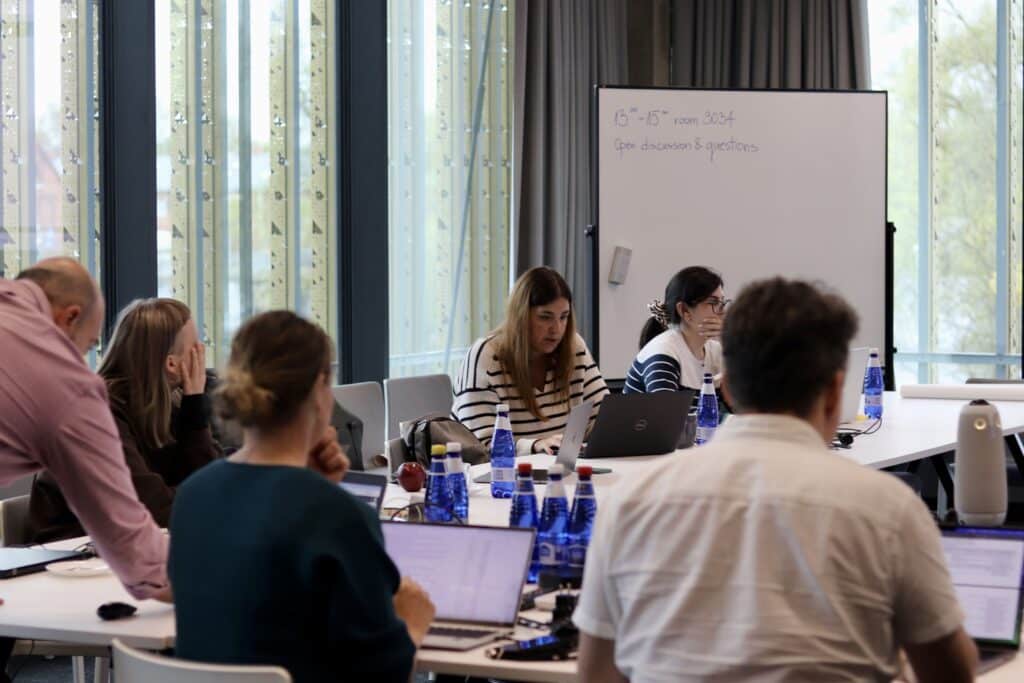
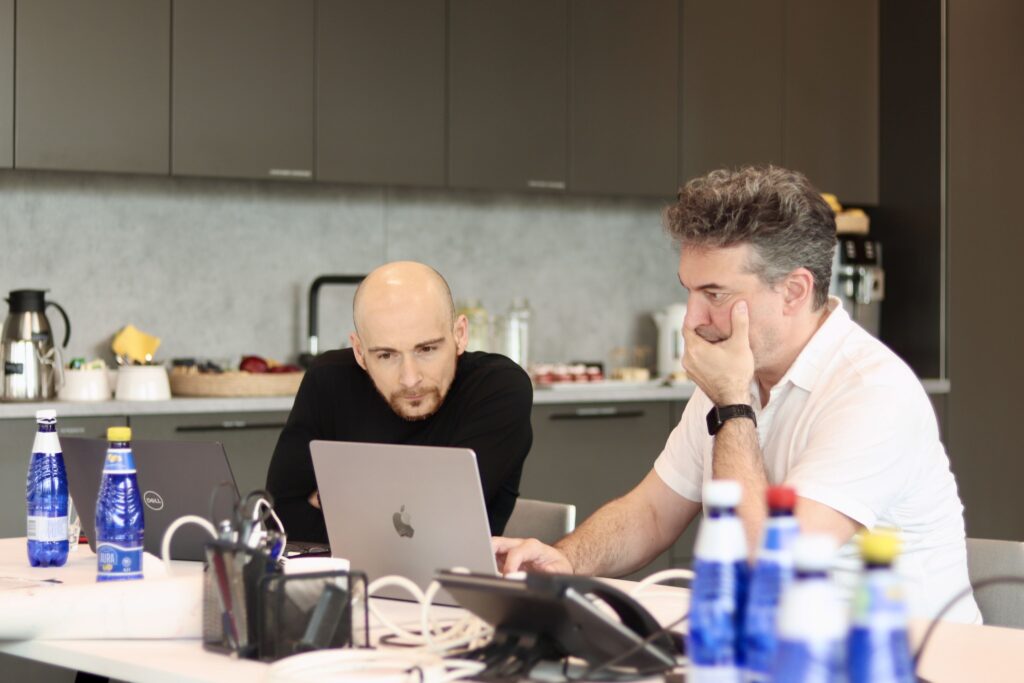
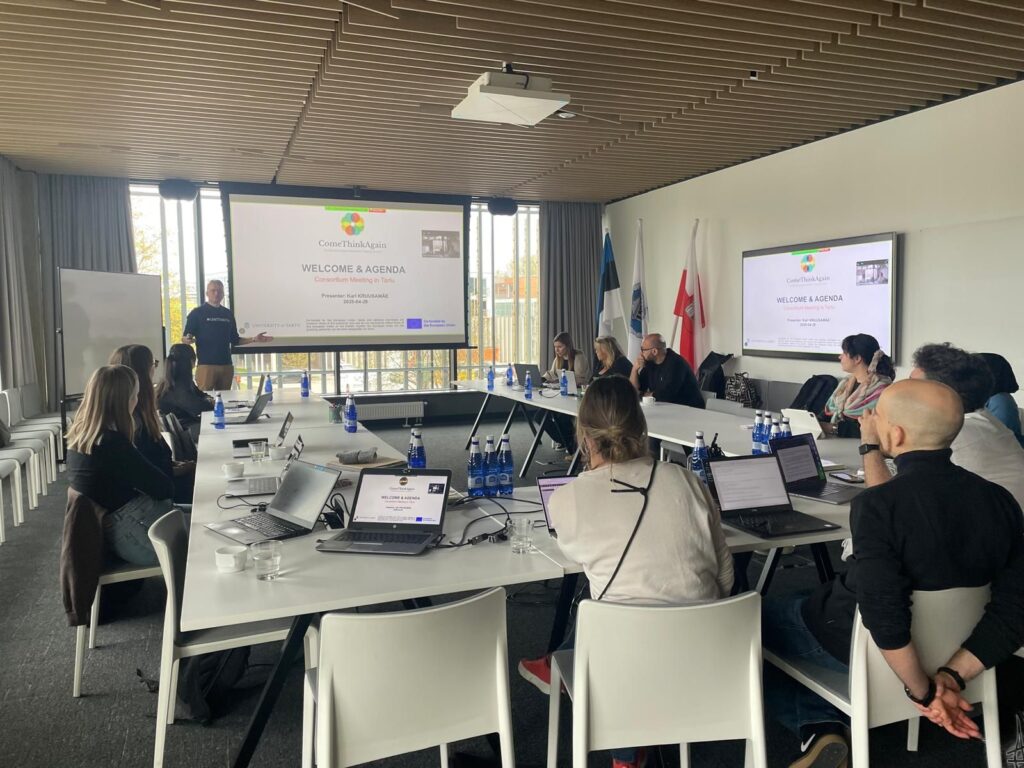
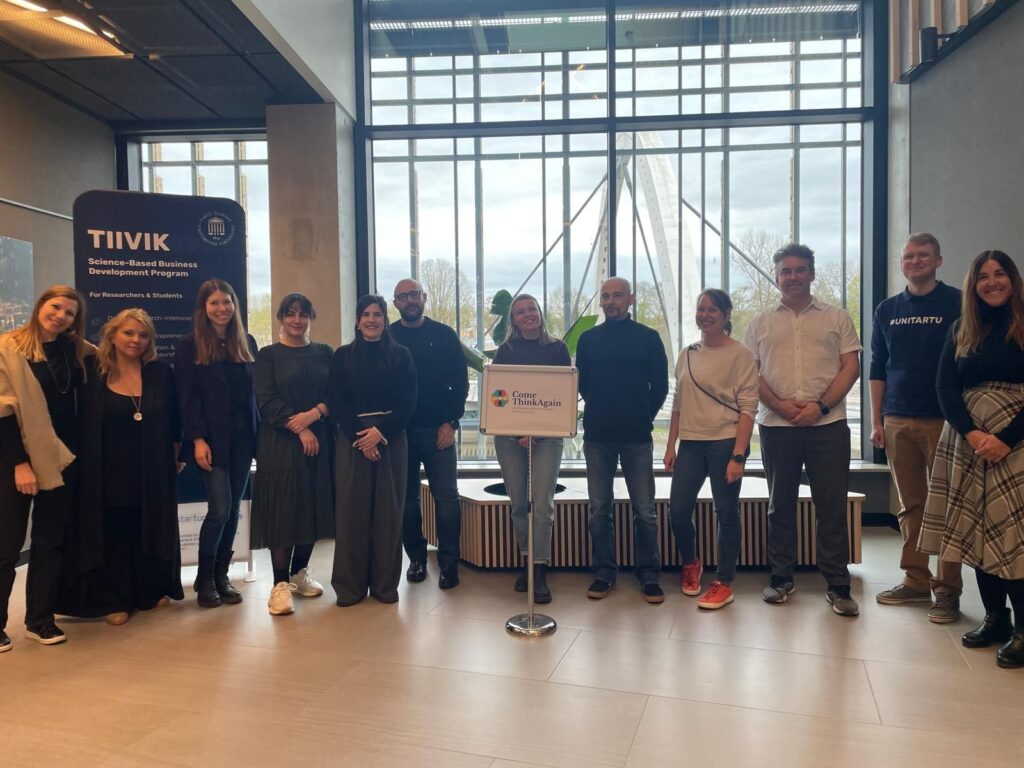
Technical Platform Development
Our technical partners presented significant progress on the ComeThinkAgain Educational Training System (CETS). The platform will support face-to-face, blended learning, and fully online teaching modes, with courses designed to provide 25-30 hours of learning (equivalent to 1 ECTS credit).
What will make our platform unique is its combination of downloadable open-source materials, official certification, and flexibility between online and offline learning experiences.
Pilot Implementation Planning
The pilot implementation and evaluation framework is taking shape, with interview questions and questionnaires being developed. The evaluation will include pre-tests, learning sessions, post-tests, certification, and interviews with selected participants.
Community of Practice and Dissemination
Our Community of Practice (CoP) was launched in May, inviting stakeholders from co-creation workshops and other interested parties to join this collaborative space. We’re expanding our social media presence to include Mastodon and Bluesky, in addition to our existing channels.
The project has also established a Sustainability Committee with representatives from each partner organization to ensure the long-term impact of our work beyond the project lifetime.
Next Steps
With content development in full swing and pilot implementations on the horizon, we’re entering an exciting phase of the project. Our next consortium meeting is scheduled for October.
Stay tuned for more updates as we continue to develop innovative approaches to Computational Thinking, Entrepreneurship Education, and Green Skills for European learners!
